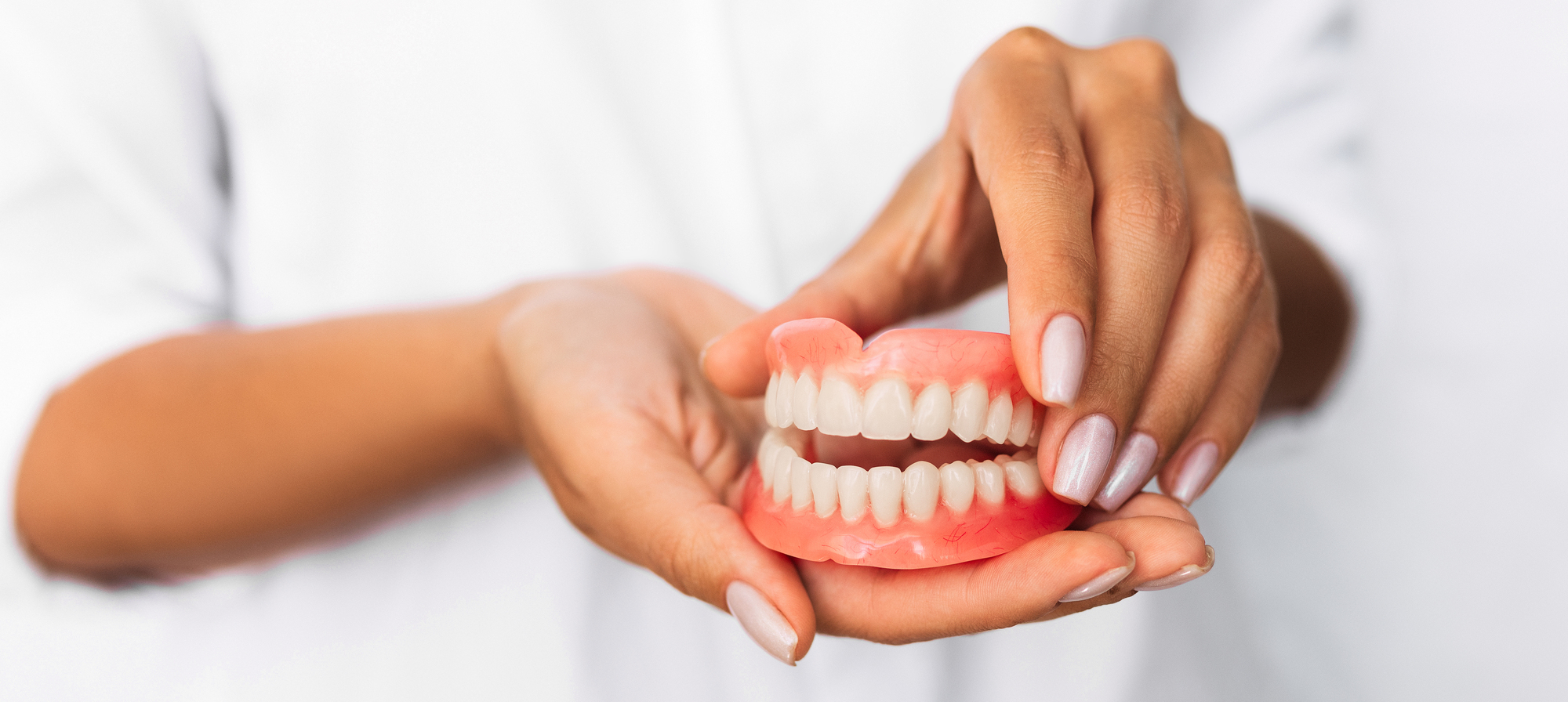Prosthetic Dentistry Explained: Ashraf Dentistry Weighs In

Prosthetic dentistry continues to evolve, offering patients various solutions for damaged or missing teeth. From structural restoration to cosmetic enhancement, these treatments each serve a unique role in oral health. Below, Ashraf Dentistry offers professional insight on five essential types of dental prostheses—highlighting their functions, considerations, and impact on long-term dental hygiene and care. (Source: Healthline, 5 Types of Dental Prosthesis Devices, Medically reviewed by Christine Frank, DDS — Written by James Roland on August 31, 2021, https://www.healthline.com/health/dental-prosthesis ).
Dental Crowns
Dental crowns restore teeth that have decayed, cracked, or are weakened by extensive wear. They reinforce the tooth’s structure while also improving its appearance to match the surrounding teeth.
Ashraf Dentistry comments, “One critical function of a dental crown is to protect the underlying tooth structure and restore bite integrity. What often goes unrecognized is the precision required to prepare the tooth and ensure marginal fit. Poorly contoured crowns can lead to inflammation or recurrent decay. In a high-standard dental office in Yorkville, precise digital scanning and modeling techniques help avoid these complications. Long-term success hinges on rigorous dental hygiene and periodic evaluation.”
Dental Implants
Dental implants serve as powerful artificial tooth roots, securely anchoring replacement teeth to the jawbone and restoring confidence and smiles. They are widely regarded for their strength and ability to preserve bone integrity after tooth loss.
Ashraf Dentistry shares, “Implants uniquely stimulate the jawbone, which helps prevent the resorption typically seen after tooth loss. This biological interaction is often overlooked but vital for maintaining facial structure. From an anatomical standpoint, implant placement must account for nerve location, sinus cavities, and bone density. Success is not just about the fixture—it’s about integration and stability over time. In Yorkville dental care, emphasis is placed on pre-treatment planning using advanced imaging to ensure ideal implant positioning and load distribution.”
Dental Bridges
Dental bridges restore the gaps created by missing teeth by securing to adjacent natural teeth or implants. They restore normal chewing function and help keep surrounding teeth from shifting out of alignment.
Ashraf Dentistry explains, “The biomechanics of a bridge rely heavily on the integrity of the abutment teeth. These must be strong enough to support the occlusal forces transmitted through the prosthesis. Over-preparation of these anchor teeth can compromise their long-term viability, which is why case selection is so critical. A Yorkville dentist would assess periodontal health, bite alignment, and root structure before proceeding. Maintenance is equally crucial—interdental cleaning beneath a bridge must become part of daily dental hygiene to avoid plaque accumulation and decay under the pontic.”
Dentures
Dentures are removable prosthetics. They come in two main types: full dentures, which restore a complete set of teeth in the upper or lower jaw, and partial dentures, which fill in gaps when some natural teeth remain. These devices not only fill in gaps in your smile but also help support the facial structure, making them an essential option for those seeking to regain their confidence and ability to eat and speak comfortably.
Ashraf Dentistry highlights, “A well-crafted denture must strike a balance between retention, comfort, and aesthetics. The challenge lies in compensating for the loss of both hard and soft tissue. This requires more than just a dental mold—it involves a deep understanding of oral anatomy, muscle dynamics, and occlusal balance. For many patients, the psychological aspect of adapting to dentures is as important as the physical. A Yorkville dentist will prioritize function, speech, and confidence in the patient’s smile and daily comfort.”
Dental Veneers
Dental veneers offer a refined solution for enhancing the appearance of teeth by masking surface imperfections. These ultra-thin shells, crafted from porcelain or composite, are custom-designed to subtly improve symmetry, color, and contour—creating a natural, polished look without extensive alteration to the tooth structure.
Ashraf Dentistry comments, “Veneers require a blend of artistic and technical skill. Tooth preparation must be minimal yet sufficient to ensure durability and optical blending with adjacent teeth. The translucency and shade of a veneer must mimic natural enamel—this is where custom layering techniques come into play. What’s often underestimated is the importance of occlusal design; even minor discrepancies can lead to chipping or premature wear. In Yorkville dental care, the trend is toward ultra-conservative veneers that enhance smiles without compromising tooth structure.”
Final Thoughts
Dental prostheses are more than replacements—they are precise, bio-functional restorations directly impacting long-term oral health. Each type demands careful planning, skillful execution, and sustained dental hygiene to ensure success. Whether you’re considering crowns, implants, bridges, dentures, or veneers, the right decision starts with informed guidance and professional insight.
